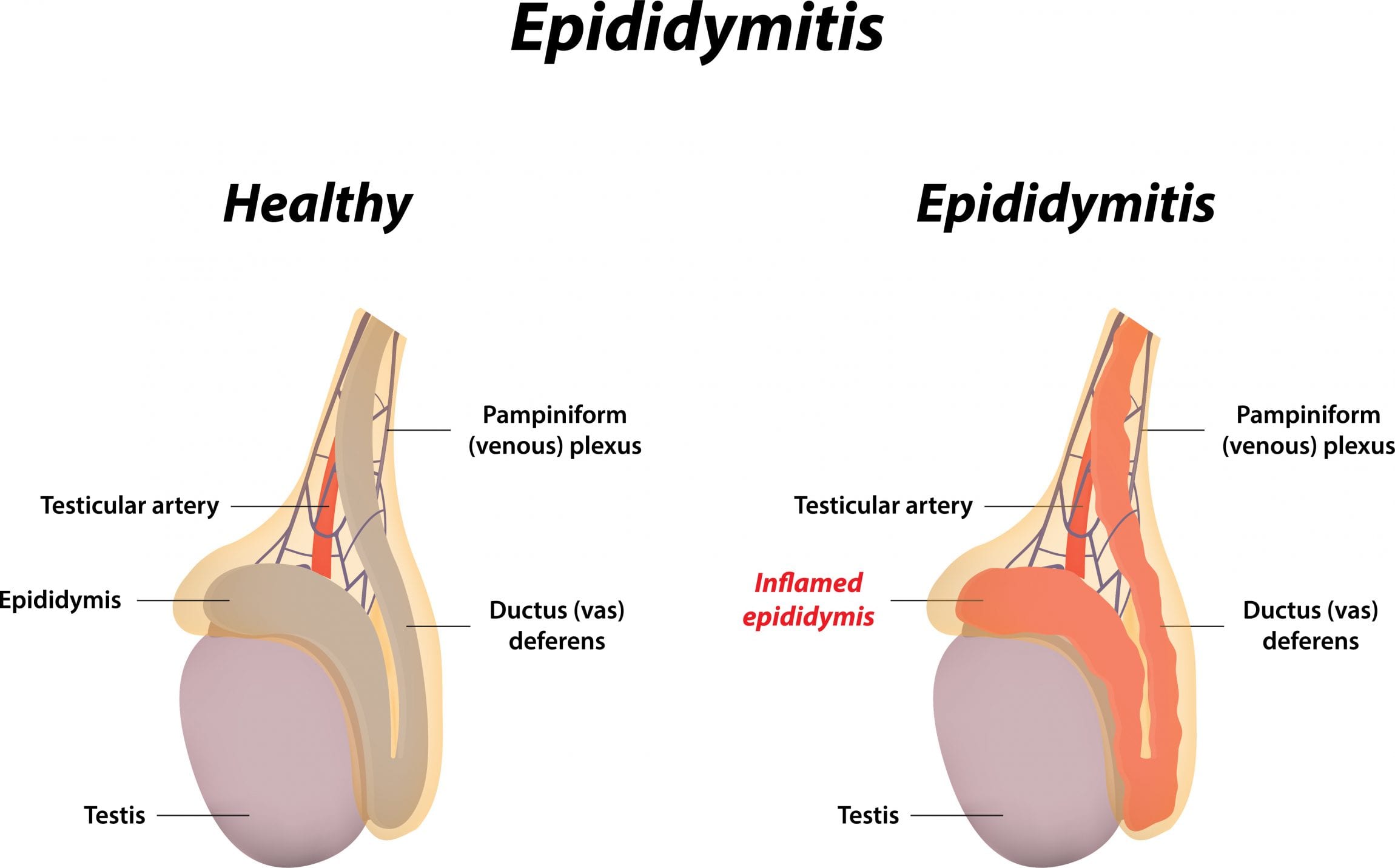Epididymal Cyst Removal in Georgia
Search and Compare the Best Clinics and Doctors at the Lowest Prices for Epididymal Cyst Removal in Georgia

Find the best clinics for Epididymal Cyst Removal in Georgia
No clinics available
Russian Federation offers the best prices Worldwide
Price: $ 586

- Home
- Georgia
WHY US?
At Medijump, we're making medical easy. You can search, compare, discuss, and book your medical all in one place. We open the door to the best medical providers worldwide, saving you time and energy along the way, and it's all for FREE, no hidden fees, and no price markups guaranteed. So what are you waiting for?

Free

Best Price

Widest Selection

Risk-Free
What you need to know about Epididymal Cyst Removal in Georgia

Epididymal cyst removal also referred to as the excision of epididymal cysts or epididymal cystectomy, is a surgical procedure to remove epididymal cysts.
An epididymal cyst is a noncancerous lump filled with fluid in the epididymis. The epididymis is the tube that collects sperm around the top of men’s testicle, in the scrotum. This type of cyst is harmless. In most cases, you do not need treatment for it. The reasons why you may need epididymal cyst removal are as follows:
-
The cyst has grown large enough to be a nuisance, look unsightly, or make you feel embarrassed.
-
The cyst is causing discomfort and pain.
-
The cyst reoccurs after other types of treatment.
What does the Procedure Involve?
Epididymal cyst removal is carried out under general anaesthesia. In some cases, local anaesthesia with sedative drugs may be used instead. With local anesthesia, you will be awake but the affected area will be numbed. Sedative drugs will help you feel more relaxed.
Your surgeon will start the procedure by making a small incision in your scrotum over the cyst. Then, the cyst is carefully separated from the tissue that surrounds it and removed. Your surgeon will try to preserve as much of the epididymis as possible. However, sometimes a portion of the entire epididymis has to be removed as separating the two can cause damage to other structures.
Once the cyst is removed, your surgeon will close the epididymis and the skin incision using dissolvable stitches, which do not need removing.
How Long Should I Stay in Georgia?
Epididymal cyst removal is usually performed as an outpatient procedure, meaning you do not need to stay overnight in the hospital. You may leave as soon as the effects of the anaesthesia subside. Still, you need to plan to stay in Georgia for 5 to 7 days for initial recovery and follow-up checkups.
What's the Recovery Time?
You should minimize activity and rest as much as you can for the first two days after your epididymal cyst removal in order to prevent swelling. You may be able to do some light activities and get back to work (office job) within 3 to 5 days following the surgery. In general, you should be able to return to your normal activity in around a week. However, strenuous exercise and heavy lifting must be avoided for at least 2 weeks. Therefore, if you have a manual job, take at least 2 weeks off work. Since the sutures used are typically self-dissolving, they will fall out on their own within two to three weeks following the surgery.
What About Aftercare?
After epididymal cyst removal, you will need to do the following to avoid complications:
-
Your doctor will likely prescribe you painkillers to help ease any pain or discomfort. Make sure to take them as prescribed.
-
If you have any medications you need to take (for other medical conditions you may have) ask your doctor when you can restart your medication.
-
Make sure you have someone to help you out for at least the first 24 hours following your surgery.
-
Avoid driving or operating machinery, such as cookers and other domestic appliances.
-
Avoid drinking alcohol for a few weeks after your surgery.
-
Wear scrotal support and supportive underwear to prevent swelling.
-
Wash the surgical wound daily with soap and water. Make sure to dry it thoroughly with a clean towel in order to prevent infection.
-
You can shower the day after surgery but do not take a bath, swim, use a hot tub, or soak the surgical site in water.
-
Apply ice compresses to the surgical site.
-
Avoid sexual activity until your wound has fully healed and it is comfortable for you to do so.
What's the Success Rate?
Epididymal cyst removal is a safe and efficient procedure. However, as with any surgical procedure, there is a risk of complications and side effects, such as:
-
Recurrence of the cyst or new cyst appearing in the future.
-
Hematoma or blood collection of the testes.
-
Possible infection of the incision or the testes.
-
Chronic pain in the affected area.
-
Testicular ischemia/loss.
-
Shrinkage of the testicle.
-
Reduced fertility.
These complications can be avoided if you choose a board-certified surgeon and follow every post-operative instruction your doctor gives you.
Are there Alternatives to Epididymal Cyst Removal?
The alternatives to epididymal cyst removal are:
-
No treatment – in some cases, if the cyst is not causing any symptoms and is not growing any bigger, your doctor may suggest you leave it alone.
-
Aspiration – during this procedure, your surgeon will drain the fluid from the cyst using a needle.
What Should You Expect Before and After the Procedure
If you experience pain, discomfort, or embarrassment before you undergo epididymal cyst removal, you will not experience them anymore after the surgery. You will be able to enjoy many activities you enjoyed before without having to experience pain.
Whilst the information presented here has been accurately sourced and verified by a medical professional for its accuracy, it is still advised to consult with your doctor before pursuing a medical treatment at one of the listed medical providers
No Time?
Tell us what you're looking for and we'll reachout to the top clinics all at once
Enquire Now

Popular Procedures in Georgia
Price on Request

Prices Start From $714

Prices Start From $106

Recommended Medical Centers in Georgia for procedures similar to Epididymal Cyst Removal

- Interpreter services
- Translation service
- Religious facilities
- Medical records transfer
- Medical travel insurance
- Health insurance coordination
- TV in the room
- Safe in the room
- Phone in the room
- Private rooms for patients available

- Interpreter services
- Translation service
- Religious facilities
- Medical records transfer
- Medical travel insurance
- Health insurance coordination
- TV in the room
- Safe in the room
- Phone in the room
- Private rooms for patients available

- Interpreter services
- Translation service
- Religious facilities
- Medical records transfer
- Medical travel insurance
- Health insurance coordination
- TV in the room
- Safe in the room
- Phone in the room
- Private rooms for patients available

- Interpreter services
- Translation service
- Religious facilities
- Medical records transfer
- Medical travel insurance
- Health insurance coordination
- TV in the room
- Safe in the room
- Phone in the room
- Private rooms for patients available
Epididymal Cyst Removal in and around Georgia
Introduction
Georgia is located in the Caucasus region of Eurasia and it is the most visited country in South Caucasus. From its green valleys and vineyards to its old watchtowers and old churches, this country will never disappoint. Over the last 5 years, Georgia has been visited by an increasing number of medical tourists. These foreign patients, mostly come from Saudi Arabia, Kuwait, Iraq, and Russia, are attracted to Georgia’s high-quality and affordable medical care, as well as the medical center’s first-class services. Most of these patients come for dental treatments, cosmetic surgery, oncology, radiology, liver and kidney transplantation, bone marrow transplantation, orthopedics, infertility treatment, and bariatric surgery.
Popular Cities and Regions in Georgia
Georgia’s vibrant capital, Tbilisi, offers picturesque Old Town, outstanding architecture, dramatic valley setting, and terrific cuisine. Home to 30% of the country’s population, this city is lively and filled with hipster culture and techno scene. One of the most famous monuments in the city is Kartlis Deda, which is a 20-meter tall aluminum symbol of Tbilisi. Another popular city is Batumi, which is the country’s most charming seaside destination. Its synthesis of the mountain and the sea is truly unique and interesting. The most popular attractions in this city, besides its beach, are Batumi Boulevard, Batumi Botanical Garden, Medea Monument, Ortajame Mosque, and Batumi Archeological Museum.
Transport in Georgia
International tourists will arrive in Tbilisi International Airport. It serves flights to and from several cities in Europe, the Middle East, and Asia. There are numerous budget airlines that operate flights from this airport, including IndiGo, Ryanair, and AirAsia X. To travel around the country, domestic flights, buses, and trains are available. To get around major cities, several public transportation options are available. The most common way to get around is by local minibus and buses. Taxis are widely available, but make sure to agree on the fare before getting on.
Visas in Georgia
Georgia allows citizens of 98 countries, including all European Union countries, the US, Japan, and Australia, to stay for a year. Holders of passports issued by 66 countries, such as Bolivia and Egypt, are eligible to apply for e-Visa. The e-Visa is valid for 90 days per 180-day period and 30 days per 120-day period. Citizens of other countries, such as Sudan and Morocco, need to apply for a visa in advance.
Weather in Georgia
Winter in Georgia is usually very cold, with temperatures ranging from 2°C to 6°C, and sometimes dropping below 0°C at night. Summer, from June to August, is pleasantly warm with average temperatures of 20°C to 30°C. However, some coastal areas are humid during this season. Spring and Autumn are delightful as the weather is not too hot, nor too cold. Both of these seasons see frequent rainfalls.
Additional Info
- Local Currency: Lari (GEL) is the official currency of Georgia. 1 USD is equivalent to 2.7 GEL.
- Money & Payments: ATMs are easily available and credit cards are accepted in most restaurants, shops, and hotels. However, if you travel outside of Tbilisi, it’s best to bring plenty of cash. Tipping is expected.
- Local Language: Georgian is the official language. Russian is common, while English is becoming more widespread.
- Local Culture and Religion: The majority of Georgia’s population is Christian. Other religions, including Islam, Judaism, and Bahá'í Faith are present.
- Public holidays: Some of the most celebrated public holidays are New Year’s Day, Orthodox Christmas, Great Saturday, Day of Victory over Fascism, and Independence Day.
Popular Searches
- Plastic Surgery in Thailand
- Dental Implants in Thailand
- Hair Transplant in Thailand
- Breast Augmentation Thailand
- Gastric Sleeve in Thailand
- Gender Reassignment Surgery in Thailand
- Laser Hair Removal in Bangkok
- Botox in Bangkok
- Dermatology in Bangkok
- Breast Augmentation in Bangkok
- Coolsculpting in Bangkok
- Veneers in Turkey
- Hair Transplant in Turkey
- Rhinoplasty in Turkey
- Stem Cell Therapy in Mexico
- Rhinoplasty in Mexico
- Liposuction in Mexico
- Coolsculpting in Tijuana
- Rhinoplasty in Korea
- Scar Removal in Korea
- Gastric Sleeve in Turkey
- Bone Marrow Transplant in India
- Invisalign in Malaysia
- Plastic Surgery in the Dominican Republic
- Tummy Tuck in the Dominican Republic
- Plastic and Cosmetic Surgery in Poland
- Rhinoplasty in Poland
- Hair Implant in Poland
- Dental Implants in Poland
- IVF in Turkey